#quest friends! hereafter
Explore tagged Tumblr posts
Photo
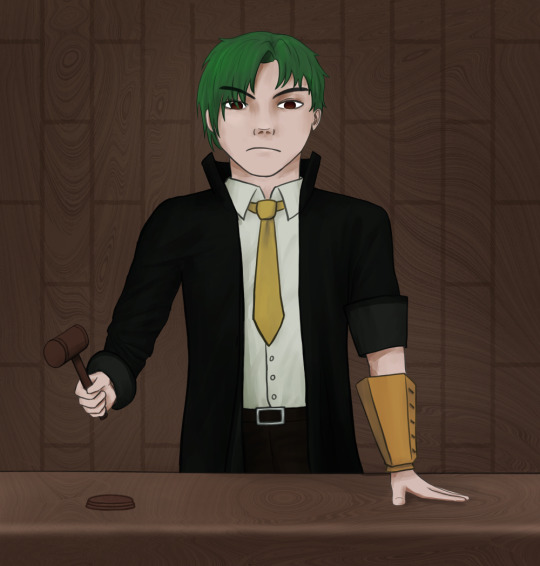
tfw someone murders your rutabaga boyfriend who is actually four eels
#quest friends!#quest friends! hereafter#quest friends spoilers#lol took half the design from the bean and half from the secret santa gift#.......idk why the idea of drawing him as something resembling attractive amuses me so much#hehehe glad i finished this before the ep
14 notes
·
View notes
Photo

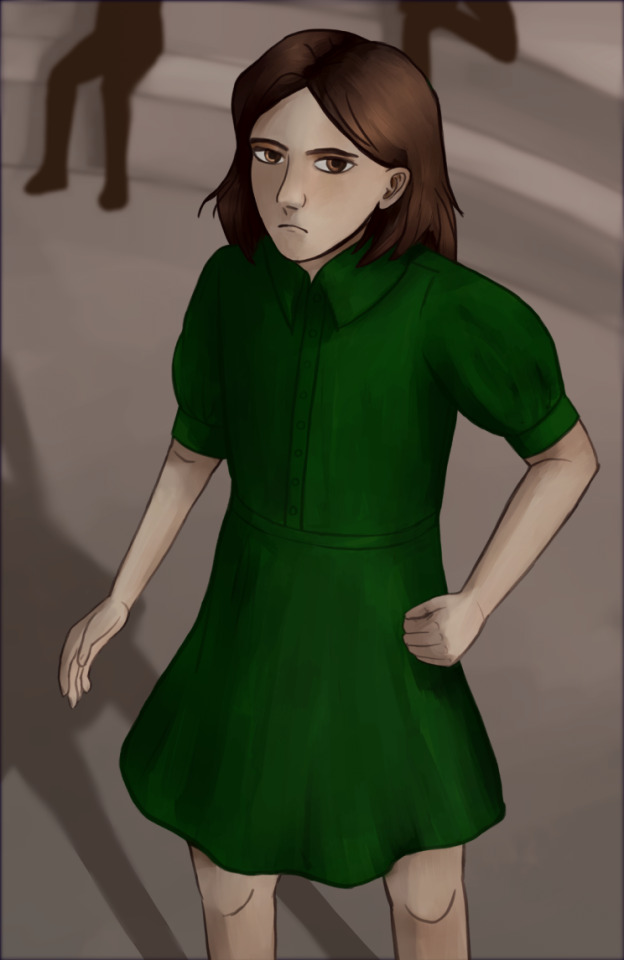
pov you’re about to get tag team dueled on
#quest friends!#quest friends! hereafter#hehehe tried out some new things with these and i kinda like how they turned out#made for the secret santa exchange for someone who isn't on tumblr rip#also my gift giver drew oset scuba as a tumblr sexyman and there may have been tears in my eyes
12 notes
·
View notes
Text
Oh my god I’m losing my mind at the new quest friends episode lmao, I’m going from Oh My God Meta Mystical Knowledge to OH MY GOD DONT GIVE THE CHILD RED BULL
#quest friends#rip Hilda you would’ve loved going on a stakeout#quest friends podcast#quest friends! hereafter
0 notes
Text
Doodles!


@questfriendspodcast Would any of you like to guess who the second one is? If you’re correct, you get a point! (I’d say this one’s a lot easier than the last one)
#quest friends!#quest friends#quest friends hereafter#fanart#doodle#i really like how these turned out#no these are not the canon designs#but this is a podcast#so what are canon designs anyways#oh boi it sure has been a while since I’ve posted something-#guess the qf! character
13 notes
·
View notes
Text

Don’t feed the child Dead Bull
#quest friends#quest friends!#quest friends hereafter#red bull#someone asked for a computer wallpaper version of this art#so here it is
8 notes
·
View notes
Text
@questfriendspodcast
Quest Friends Hereafter art dump! posted some on Kyle’s discord already but the rest of the world must see!
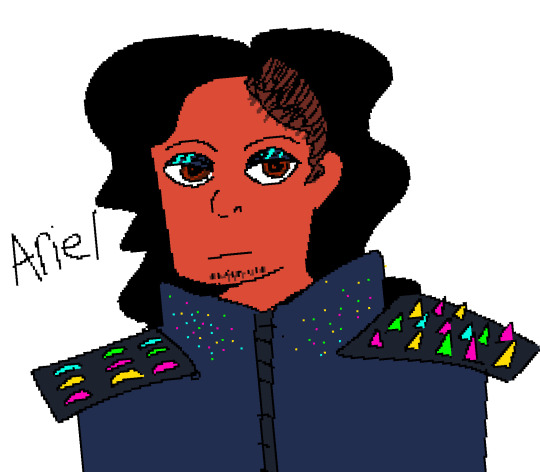
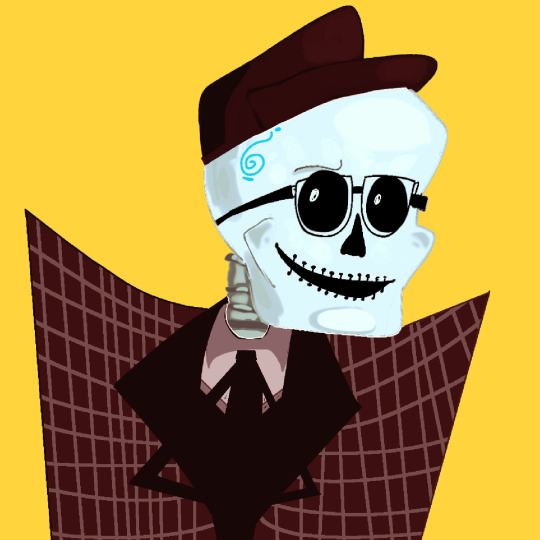
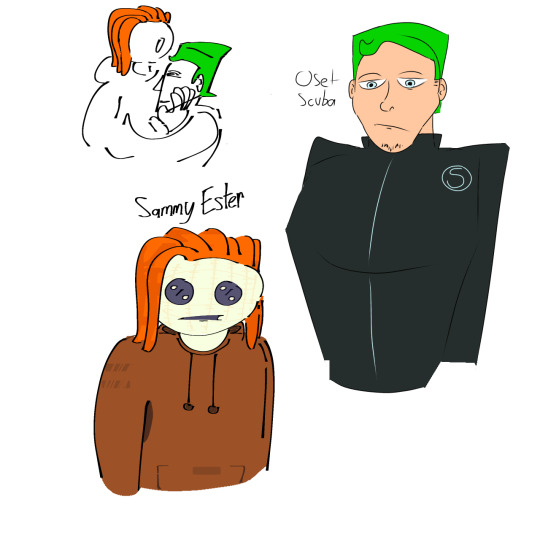
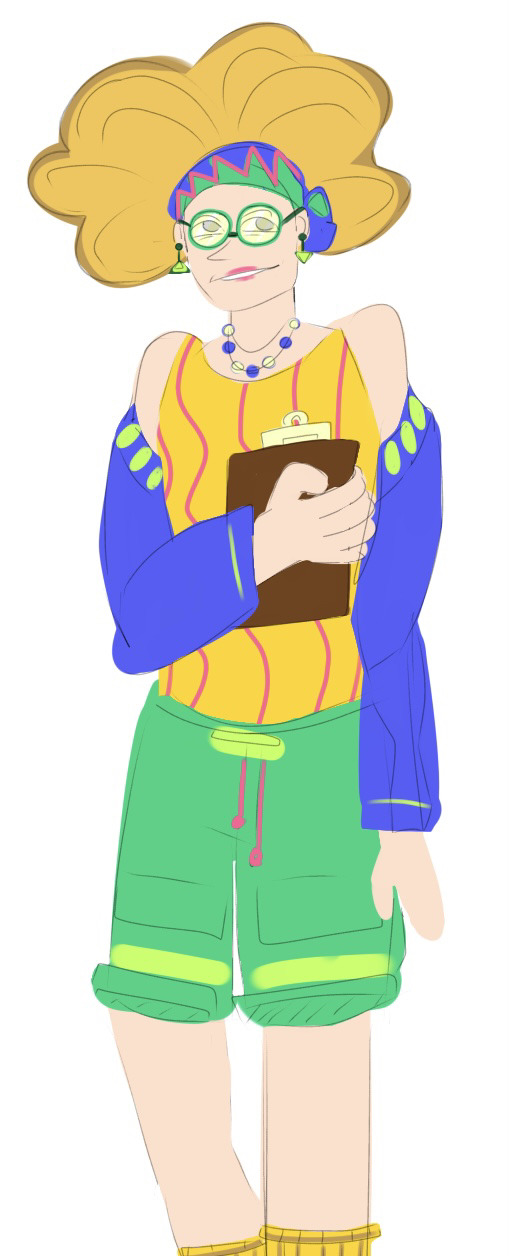
and then a couple of sketches . One could even say it’s a… Misketchwicz.
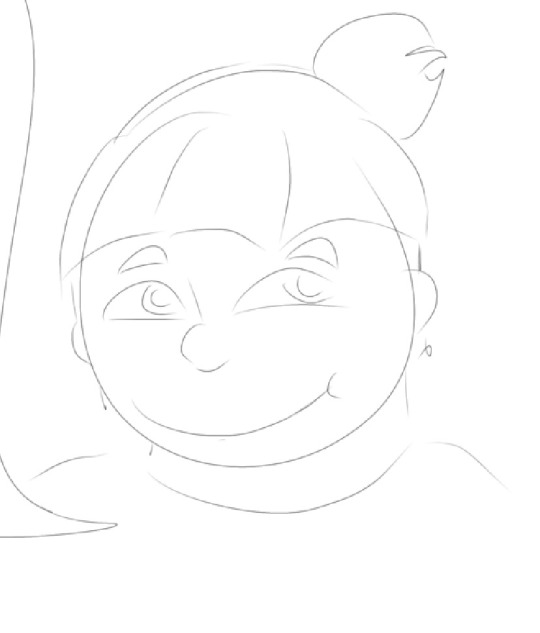

#quest friends#quest friends hereafter#Ariel Quest Friends#Quique Quest Friends#Sparky Quest Friends#Hilda Quest Friends#Sammy Quest Friends#Oset Quest Friends
8 notes
·
View notes
Text




Just remembered my silly @questfriendspodcast doodles I made as propaganda for my friends lol, these sketches were super lazy but I think they’re silly
#ignore the fact that sparky’s hands are literally backwards in the first one#anyways#sparky malarkey#Lucas bang#Irene Hawthorne#Ariel Zamora hueso#quest friends#quest friends: hereafter#quest friends podcast
14 notes
·
View notes
Text
I have nothing else to say to this.
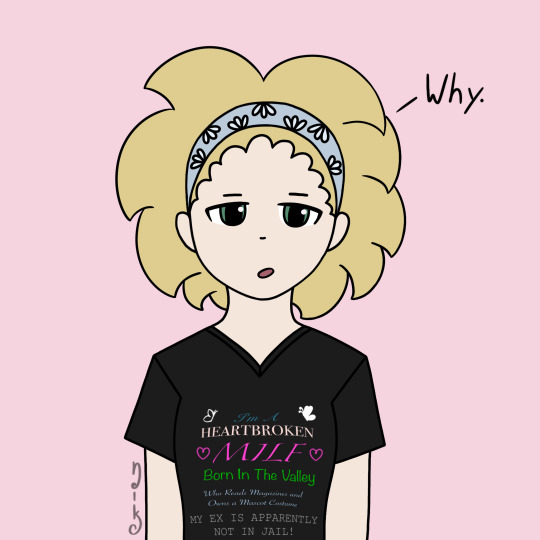
@questfriendspodcast
#quest friends#quest friends!#quest friends hereafter#fanart#i just want you all to know#2 hours and 4 minutes of my evening went into this#why indeed
10 notes
·
View notes
Note
Hello ! Wanted to draw some Hereafter fanart so I have a question: What exactly does Ingrid [Indrid? Not sure how it's spelled] Cold look like ?
From the Episodes:
"On the surface, not much about this figure sticks out. He’s a tall man wearing business casual clothing – khakis, dress shoes, a simple collared shirt with the top two buttons undone, and one hand loosely resting in his pocket while the other idly plays with the lighter, adding a slightly singed smell to the otherwise overpowering scent of bottom shelf cologne.
Honestly, if it weren’t for the nametag this man was wearing, he would seem like just a regular middle manager and you wouldn’t even have been able to guess that this was an Overseer leading a raid on one of the world’s largest companies. Even at first glance though, something about this man feels instinctually off, and then you notice the details.
You notice how his hunched pose never changes, how it seems less like a casual posture and more like a carefully crafted façade. You notice that the cologne is only so strong in order to mask the unmistakable smell of death. Not death in a literal way, mind you, but instead the empty stale stench of stagnation. You notice the color of his lighter’s flame, a sickly green, and how even though he’s clearly standing on the ground, the man still seems to float, only leaving a shadow in the light cast from the flame at his hip.
But, above all else, you notice the smile. It’s a stiff wide smile that wraps all the way to the sides of his head, a smile that’s clearly meant to be comforting but that feels more like a predator bearing their teeth or a corpse stuck in joyous rigor mortis. Normally I don’t like to tell you how you feel about things, but there is something supernaturally upsetting about this creature." -18. Die Card (Part 4)
"In the doorway stands a man who lacks a shadow and yet who seems to make the whole room dark. He’s hunched over in a way that feels more like rigor mortis than casual slouching. He plays with a lighter that emits sickly green flame, and he has a thick deep smile that goes all the way to the sides of his face." -41. A Birthday Haunting
Indrid Cold is based on the cryptid of the same name. His distinctive feature in all versions is an unnervingly large smile. Additionally, my Indrid Cold dresses in business casual clothing in a (pretty bad) attempt to appear "casual" and "approachable," and he only leaves a shadow in the light cast from his sickly green lighter.
Some art of the cryptid version of Indrid Cold:

My art of our Indrid Cold:

Let me know if you have any other questions!
-Kyle
#quest friends#quest friends!#quest friends hereafter#qfestions#i'm really excited for the next rest friends#because I've had Indrid Cold long before he was part of hereafter#and long before he was Indrid Cold#and instead was just “mustard shirt guy”
9 notes
·
View notes
Text
And thus, Quique was never invited to game night again.



For weird dice wednesday, I present to you, the dUltimate die.For when you friend forgets their dice and asks to borrow a set.
5K notes
·
View notes
Text

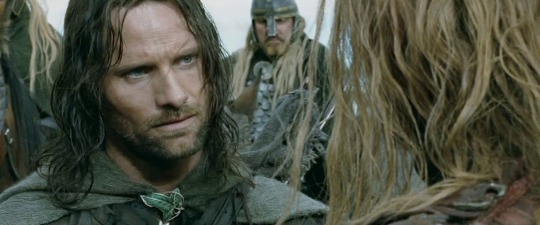
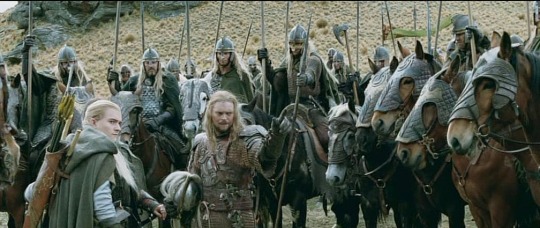


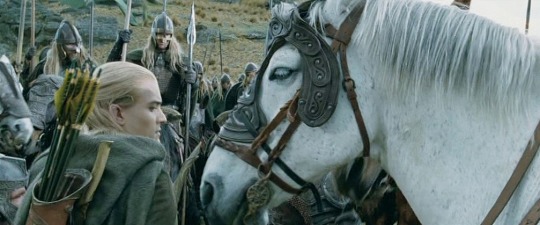

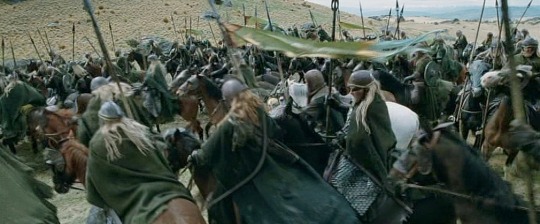
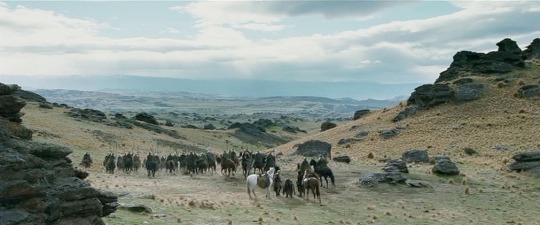
We both have need of haste ...
... Eomer said. 'My company chafes to be away, and every hour lessens your hope. This is my choice. You may go; and what is more, I will lend you horses. This only I ask: when your quest is achieved, or is proved vain, return with the horses over the Entwade to Meduseld, the high house in Edoras where Théoden now sits. Thus you shall prove to him that I have not misjudged. In this I place myself, and maybe my very life, in the keeping of your good faith. Do not fail.'
'I will not,' said Aragorn.
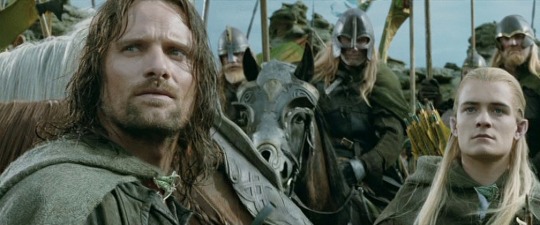
There was great wonder, and many dark and doubtful glances, among his men, when Éomer gave orders that the spare horses were to be lent to the strangers; but only Éothain dared to speak openly.
'It may be well enough for this lord of the race of Gondor, as he claims,' he said, 'but who has heard of a horse of the Mark being given to a Dwarf?'
'No one,' said Gimli. 'And do not trouble: no one will ever hear of it. I would sooner walk than sit on the back of any beast so great, free or begrudged.'
'But you must ride now, or you will hinder us,' said Aragorn.
'Come, you shall sit behind me, friend Gimli, said Legolas. Then all will be well, and you need neither borrow a horse nor be troubled by one.'
A great dark-grey horse was brought to Aragorn, and he mounted it. 'Hasufel is his name,' said Éomer. 'May he bear you well and to better fortune than Gárulf, his late master!'

A smaller and lighter horse, but restive and fiery, was brought to Legolas. Arod was his name. But Legolas asked them to take off saddle and rein. 'I need them not,' he said, and leaped lightly up, and to their wonder Arod was tame and willing beneath him, moving here and there with but a spoken word: such was the elvish way with all good beasts. Gimli was lifted up behind his friend. and he clung to him, not much more at ease than Sam Gamgee in a boat.
'Farewell, and may you find what you seek!' cried Éomer. 'Return with what speed you may, and let our swords hereafter shine together!'
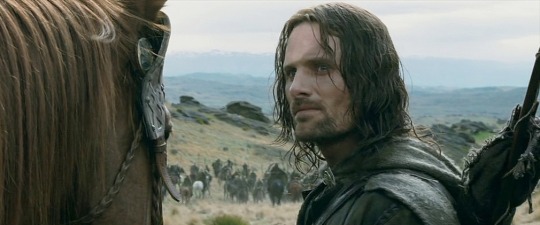
'I will come,' said Aragorn.
'And I will come, too,' said Gimli. 'The matter of the Lady Galadriel lies still between us. I have yet to teach you gentle speech. '
'We shall see,' said Éomer. 'So many strange things have chanced that to learn the praise of a fair lady under the loving strokes of a Dwarf's axe will seem no great wonder. Farewell!'
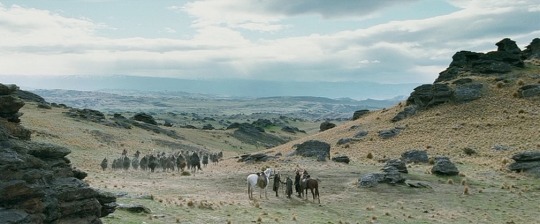
With that they parted. Very swift were the horses of Rohan. When after a little Gimli looked back, the company of Éomer were already small and far away. Aragorn did not look back: he was watching the trail as they sped on their way, bending low with his head beside the neck of Hasufel.
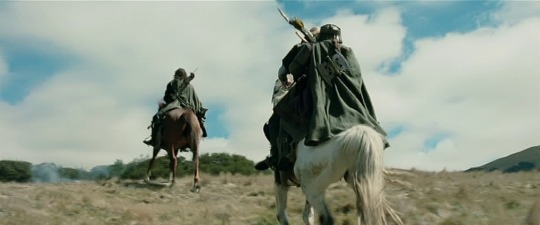
JRR Tolkien, The Lord of the Rings, The Two Towers, The Riders of Rohan
#the lord of the rings#the two towers#the riders of rohan#jrr tolkien#rohan#aragorn#legolas#gimli#eomer#arod#hasufel#peter jackson#extended edition#movie pics
63 notes
·
View notes
Text
On the Epic of Gilgamesh: The World's First Big Budget Adaptation
My Yuletide assignment this year was an excuse for me to reread (and rediscover everything I loved about) The Epic of Gilgamesh ‒ and I can seldom resist the excuse to ramble about this kind of thing, but where do you even start, with a work like Gilgamesh? It’s the world’s oldest (known) work of literature, it features an all-but-canon m/m romance, and (even from incomplete reconstructions from languages which have been dead and alien for millennia) its central themes and most striking imagery still resonate to this day.
But perhaps my favourite thing is that it’s also what amounts to the world’s first ever big-budget adaptation of an existing story, complete with extra of sex and violence, a tropey bromance between its male leads, gratuitous cameos from other popular mythic figures, and even this one wonderfully confusing deleted bonus-scene, tacked on at the end like a DVD extra. I’m not even kidding.
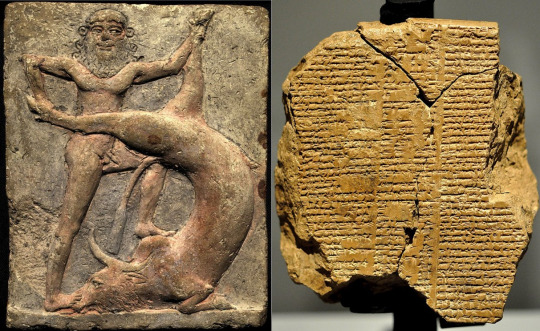
Let me explain.
The oldest surviving stories about Gilgamesh – a semi-divine, semi-mythical Sumerian king – were inscribed on clay tablets in ancient Mesopotamia (modern day Saudi Arabia) somewhere around 2000 BC. Five distinct poems from this era have survived in variously-complete format. Gilgamesh and Akka tells of how Gilgamesh gained independence for Uruk from the kingdom of Kish (ruled by the titular Akka, in what seems to be the one Gilgamesh tale most likely to have some real historical basis). Gilgamesh and Huwawa and Gilgamesh and the Bull of Heaven both recount his battles with their respective monsters. Gilgamesh and the Netherworld deals with the death of his servant Enkidu, whose shade is briefly allowed to return to the mortal realms to report on what awaits in the hereafter. And finally, The Death of Gilgamesh deals with Gilgamesh’s death from illness, the gods decreeing that semi-divine isn’t sufficient for immortality.
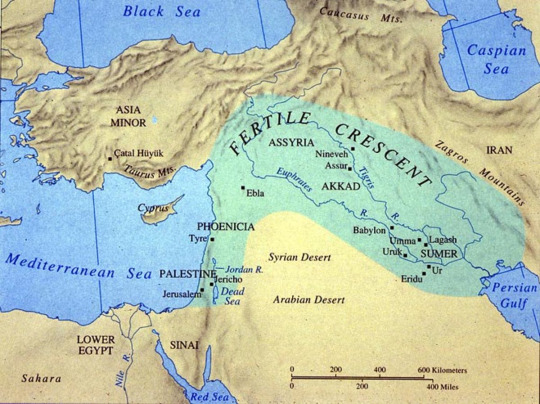
But these aren’t the best-known version of Gilgamesh. A few centuries later, someone took those existing tales and reworked them into a single, cohesive epic, spanning 11 tablets (plus one confusing bonus tablet that we’ll get to later on). The new, integrated epic promotes Enkidu from merely a servant to Gilgamesh’s equal: created to be his companion by the gods, in answer to prayers of the people, exhausted by Gilgamesh’s tyrannical rule.
In all the best traditions of modern shonen manga, Gilgamesh and Enkidu meet, fight, and then become fast friends. Together, they battle both Humbaba and the Bull of Heaven, in episodes only lightly reworked from the original poems. But this time, these acts anger the gods, and their punishment is Enkidu’s death. Distraught at the loss of his friend, and faced with the horror of his own mortality, Gilgamesh goes on a quest to find the one man the gods ever made immortal: Utnapishtim, the Sumerian Noah (our gratuitous cameo). But Utnapishtim can only tell Gilgamesh that, short of saving the world from another biblical flood, his quest is a fool’s errand. Finally accepting his own mortality, Gilgamesh returns home. (This is, of course, a very summarised version of the full epic, but you get the general gist.)
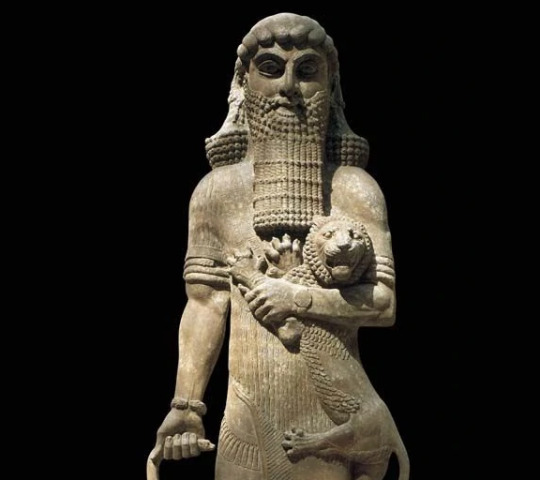
Comparing the epic to the ‘original’ poems can be a little fraught, considering that even after reconstruction from multiple different partially-preserved copies, there are still gaps in both versions. We can only speculate whether there might have been other Sumerian poems that haven’t survived ‒ let alone how many other variations existed in oral tradition throughout the region and beyond. But for all the epic version adds and changes, what stands out most is how they’ve picked up and expanded on what was already the strongest running theme of the Sumerian stories: mortality – whether that be the desire to leave behind a record of great deeds to be remembered by (such as the slaying of monsters), or more explicitly in those final two poems, dealing with Enkidu and Gilgamesh's deaths.
For all that’s been added, the promotion of Enkidu to Gilgamesh’s equal does have more basis in the Sumerian originals that it might first appear. Though explicitly only 'a servant', Enkidu is the only other character appearing (or at least mentioned) in every poem, aiding his king in his struggles against Humbaba and the Bull of Heaven. In sending Gilgamesh to the netherworld upon his death, the gods even note that he will be reunited with his ‘beloved’ Enkidu, whose death he so fervently mourned. And though everything else in the circumstances of Enkidu’s death has been changed, both versions render it a major event, and one that leaves Gilgamesh heartbroken.
There’s even a trace of epic!Gilgamesh’s tyranny in Gilgamesh and the Netherworld, where he so exhausts the men of Uruk with his games and contests (similar accusations to the first chapter of the epic) that the gods themselves step in, arranging for his favourite toys to fall through a crack in the earth into the Netherworld (prompting Enkidu to volunteer to retrieve them… and you can see where this is going).
But for all the adaptation takes from those old poems, some of its most striking chapters are (as far as we know) completely new – including all of Enkidu’s backstory. The Gilgamesh of the epic is still respected as a wise and powerful ruler, and he still exhausts the men of Uruk with his contests, but now, he’s also been asserting his right to droit de signeur (yes, really – that trope goes this far back), and his people aren’t happy. The gods’ solution is to make the semi-divine Gilgamesh an equal: Enkidu the wild man, raised in the wilderness by beasts. Nearly as huge and powerful as Gilgamesh himself, Enkidu soon becomes a problem for hunters trying to make their living nearby.
How do you solve a problem like a wild man? Well, obviously, you introduce him to sex.
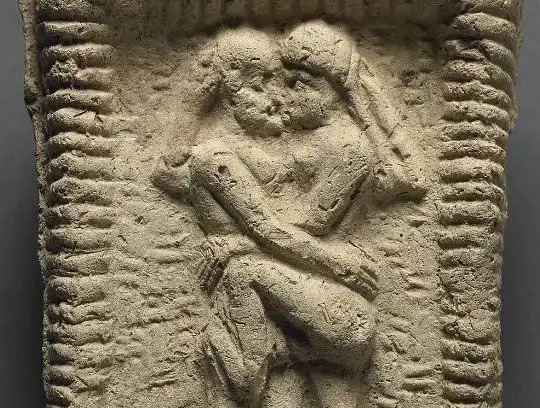
Gilgamesh’s solution to the Enkidu-problem is to send Shamhat, a cultic prostitute of the temple of Ishtar (ritual sex was apparently a Big Thing in some ancient fertility cults) – and it works. After a full seven days of sex with Shamhat (look, this is why you send a professional), Enkidu finds he can now understand the language of men, but the wild animals reject him. Something stirs in him when Shamhat tells him of Uruk and Gilgamesh, but the tipping point comes when he learns Gilgamesh is due to make a scheduled appearance at an upcoming wedding (ifyouknowwhatimean). Enkidu rushes to Uruk, intercepts Gilgamesh on the very doorstep of the bride in question, and the two demi-gods proceed to throw down. And then become instant BFFs. Seriously, I wasn’t kidding about how very Shonen Jump it is; I don’t know what else to tell you.
Now, to what degree these new intro chapters were an excuse to sex things up and get the audience’s attention, I can only speculate – but there is a lot of sex in these first two tablets (and next to none afterwards). Regardless, this feels like the perfect place to segue into what for many will be the more pressing question: just how gay is the Epic of Gilgamesh?
Because I mean, just on a surface level, it’s already pretty suggestive: Enkidu, having newly discovered sex, shows up to pointedly cockblock Gilgamesh’s appointment with a young lady, and one round of (ahem) "wrestling" later, suddenly they really like each other. And the mere fact the gods’ solution to "this guy keeps exhausting all our men and fucking all our women!" is to send him Enkidu… you’ve got to wonder if he’s just a wrestling partner on Gilgamesh’s own level, or is he meant to satisfy other needs as well?
But you really don’t need slash-goggles to find subtext in this tale. Even the academics are here for this one.
Significantly, Enkidu’s coming is foretold to Gilgamesh in a series of prophetic dreams, helpfully interpreted for him by the goddess Ninsun, his mother. In the first, Enkidu is represented by a meteor that falls down before Gilgamesh – and to quote George’s translation directly, Gilgamesh recalls, “Like a wife I loved it, caressed and embraced it.” This is not what you'd call ambiguous wording. His mother corrects this only in that the meteor is to be a man – and to drive this point home, Enkidu spends much of the rest of the poem being described as having strength “as mighty as a rock from the sky.” If that wasn’t all suggestive enough, one might also note that Enkidu does his share of “caressing and embracing” (that same wording, presumably going all the way back to the original language) of Shamhat during their week-long sex marathon too.
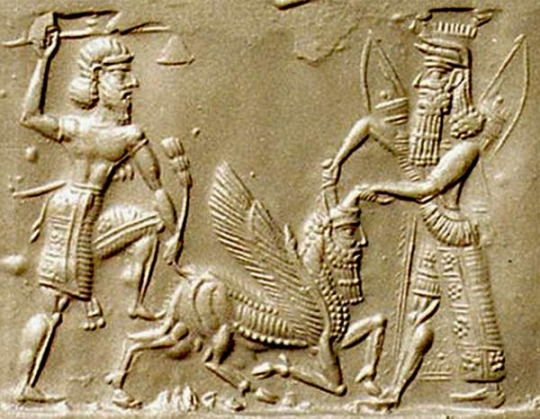
Then Gilgamesh has his second dream – almost beat-for-beat identical to the first, except that now Enkidu appears as an axe rather than meteor. This is a little more confusing. Both are certainly dangerous objects which hit hard, but axes don’t generally fall from the sky, and Enkidu is never compared to an axe again. So why include it?
The most compelling (and really the only) academic explanation I’ve seen put forward is that both objects may be playful Akkadian puns. Kisru (meteor) evokes kezru, and hassinu (axe) evokes assinnu – and both kezru and assinnu are apparently terms for types of male cultic prostitute: men who have sex with other men. Lest you wonder if this might be reaching, that amazing “Like a wife I loved it” line is still right there. It all adds up.
Before we get too carried away with pre-historic queer representation though, it’s notable that even in a time where apparently no-one batted an eye at male cultic prostitutes, the Gilgamesh/Enkidu subtext would be left largely as the stuff of implication – but the pattern is also weirdly familiar. Like modern media adaptations from Sherlock to Captain America: Winter Soldier, it’s plain the screenwriters absolutely want to imbue their central male/male relationships with all the intensity and pathos (and maybe even a bit of wink-wink-nudge-nudge) of a romance, and yet stop short of making it explicit. I cannot begin to guess whether the same forces were in play here, but the resonance is still pretty striking.
We’re still not done with gay-Gilgamesh-shenanigans though, because we’ve still got to cover that mysterious, DVD-extra of a 12th tablet, which may-or-may-not include an actual, textual statement of how much Gilgamesh likes handling Enkidu’s dick.
This one is going to need some more context. See, the 12th and final tablet of the Epic of Gilgamesh consists of a fairly-literal Akkadian translation of the latter half of the original Sumerian poem, Gilgamesh and the Netherworld. Narratively speaking, this is a bit of a record-scratch moment, because not only has the epic already reached its logical conclusion as of the end of tablet 11, Gilgamesh and the Netherworld is the one that revolves around the death of Enkidu – and in the new epic version, Enkidu has already died in completely different circumstances, way back in tablet 7. So what the hell is it doing here?
The best guess as to why anyone felt the need to include this episode in its original form is that the bulk of the original Sumerian poem relays a detailed account of how one’s actions in life will affect one’s prospects in the hereafter. Enkidu’s shade dutifully reports that a Sumerian citizen who hopes to be comfortable in the netherworld must have plenty of sons (to make offerings in the name of their departed father), must show respect to the gods, must die peacefully – the list goes on. The material has transcended the world of poetry and moved into scripture – and that may have been considered worth preserving long after the original tales were lost.

So where does the dick-touching come in? Brace yourselves: Enkidu’s account of the netherworld includes some graphic details about what happens to your junk. That crotch you touched, so that your heart rejoiced, is filled with dust like a crack in the ground. And so on.
Here’s where making definitive statements about this passage get messy. There are at least two different versions (the original Sumerian and the one from the epic) in different languages, and not always preserved well enough that all the words are still legible. So I’ve seen translations where it seems to be Enkidu’s own body that Gilgamesh ‘rejoiced to touch’. I’ve seen versions where it seems to be some unnamed woman’s body instead. Or maybe Enkidu’s saying that even having a wank isn’t worth much rejoicing in the afterlife (and for the record, I’ve seen all the above in just the work of just one author, Andrew George. Consensus is not a luxury we have here). There’s some ambiguity there, and I have no idea how much of that is down to interpretation, translation, or the actual state of the text. The 12th tablet of the epic of Gilgamesh remains a mystery stuffed into an enigma (then presumably filled in with dust).
Anyhow, back to the main text of the epic. From the meeting of Enkidu and Gilgamesh, things happen surprisingly fast. Gilgamesh immediately proposes a trip to the cedar forest to slay the monster Huwawa: an act which so impresses the goddess Ishtar that she hits on Gilgamesh, he rejects her, and she sends the Bull of Heaven to punish him. Angered by the death of both Huwawa and the bull, the gods inflict a fatal illness on Enkidu, whose death leaves Gilgamesh heartbroken. Like screenwriters trying to cram everything from Captain America’s origin story to his emergence from the ice into a single movie, the complete tale of Gilgamesh’s time with his literally-god-given-soulmate seems like it’s been compressed down to maybe a couple of months, max. But such is the nature of adaptations like this one.
But the best parts of the epic are hardly over. Gilgamesh’s search for Utnapishtim, the one man ever made immortal by the gods, will see him meet scorpion men and stone men, will take him across a sea whose very touch is death, and force him to race the sun through the tunnel it takes each night under the earth. He finds the man he seeks at the end of the world – which is our poet’s excuse to include the entire Sumerian flood myth in the narrative, as Utnapishtim recites exactly what he had to do to earn his immortality.

Gratuitous as it may be, this is not a complaint. I kind of love the pre-biblical Sumerian version of this story – not least because, despite being initiated by the most revered of the gods, the deluge sent to punish mankind for their ills is unambiguously framed as a mistake. Mankind is saved only because Ea, wisest of the gods, sneakily breaks his oath of secrecy by alerting Utnapishtim to the danger and directing him to build his ark – and Ea gets away with it by directing his warning not to the man himself but to the fence outside his home, so he can honestly tell the other gods “Who me? I didn’t tell anyone, I only whispered it to a fence!” (I like to imagine him walking away from that initial meeting with the other gods rolling his eyes, going, “Well someone’s gonna regret this in the morning, you just wait. Alright, alright, damage control time…”)
And the gods absolutely do regret the deluge. When at last the rain stops, and Utnapishtim lights some incense in ritual thanks to the gods for his survival, the text describes the parched gods clustering around the smoke of the offering like flies. To find something like that – that comes so close to suggesting that the gods themselves depend on humanity for some measure of their power and comfort – in a text this old blows my mind a little. It’s also a hell of an image.

In any version of Gilgamesh, the general attitude to the gods has a lot of commonalities to what you’d find in, say, Greek mythology. The gods are absolutely divine and worthy of worship, but also come across as one huge, long-running soap opera of privilege, dysfunction and pettiness. Even the Athenians, though, generally kept the image of their patron goddess Athena reasonably clean. By contrast, when Uruk’s own patroness Ishtar appears in the tale, her role is to hit on Gilgamesh, be rejected, go crying to her father for help, and send the Bull of Heaven down for revenge. Gilgamesh insults her, kills the bull, and even hurls part of its carcass at her as a parting blow. He then makes flasks of its horns and presents them to her own temple in her honour. For bonus confusion, the original Sumerian Gilgamesh and the Netherworld also opens with a passage where Gilgamesh does Ishtar a much-appreciated favour in clearing out the demons infesting a divine tree. What on earth are we supposed to make of it all? The worship of Ishtar must have taken some truly god-level compartmentalisation.
Much as I love Gilgamesh, some of it is inescapably pretty impenetrable to the casual modern reader. If you were paying attention back at that very first bit about Gilgamesh and the Netherworld, for example, you might have caught that plot point where the great king Gilgamesh so exhausted all the men of Uruk with his games that the gods themselves had to step in and take his toys away. What those toys were isn’t totally clear, but the best guess seems to be a ball and a mallet. These were made of wood from that divine tree, but even so – was ancient Sumerian croquet really that intense? You’ll run into stuff like this a lot reading any version of Gilgamesh – scholars will do their best, but some of it just doesn’t translate, reminding you you’re reading something written in a cultural context no-one’s seen in over 4000 years.
But that only makes it all the more fascinating when (like finding bits of Shakespeare in the infinite monkey cage) you run into the stuff that does still resonate. I could not tell you why Gilgamesh begins his case for why they should rebel against Kish with a spiel about the digging and/or operation of wells – but then you get to the bit where Akka compares Uruk with its great city walls of Uruk to a cloudbank sitting on the earth, or the part where Enkidu finally responds to Akka’s repeated demands of, “Slave, is that man your king?” with, “That man is indeed my king!” – and even separated from the poet by several millennia and the hard work of so many archaeologists to piece this thing back together, the words and the imagery still get me.
I could go on here. There’s so much I love in the various versions of Gilgamesh, so much that fascinates me and confuses me (and has very much tipped me back down multiple research rabbit-holes trying to get my head around it). But as both a gigantic nerd and fanfic writer, my favourite thing might still be learning just how far back the human tradition of telling and retelling old stories goes, recreating and adapting them in new formats, to resonate with new audiences. There isn’t a doubt in my head that even way back in ancient Akkadia, there were grumpy old fans arguing that this modern newfangled epic isn’t a patch on the proper old Sumerian poems – look at all the good bits they skipped and all the stuff they got wrong! Why, you realise they aren’t even teaching scribes proper Sumerian in school anymore? Pah, no respect for the classics!
Anyway, if you’ve never read the Epic of Gilgamesh in full (and it’s really not so long it’ll take you long to do), this would be my cue to recommend you Stephen Mitchell’s version as probably the most accessible English language introduction. This one is (in his own words) explicitly a version, not a translation: Mitchell isn’t a Mesopotamian scholar, but a poet, and his goal was to create something in semi-modern verse that captures as much of the original as possible in a format more accessible to the contemporary English-speaking reader ‒ patching over the holes as best as possible. And I can only applaud him the effort: after all, it’s nothing people haven’t already been doing with Gilgamesh for thousands of years.
But if you’d like to go a bit further down the rabbit hole, my other key source was Andrew George’s translation. George is an academic, and his version is a far more literal translation, preserving the gaps where we still don’t know exactly what’s missing, but including as much as possible from the various different versions which survive to us in different places – including those original Sumerian poems. Both Michell’s and George’s books are available quite cheaply as ebooks. (George’s much-longer and much-more-academic two volume work on Gilgamesh isn’t available as an ebook, alas, but can also be found in pdf format pretty easily on the web too).
Finally, I’ve got to rec you Irving Finkel’s talk on his work on even older versions of that flood myth – it’s only tangentially related to Gilgamesh, but damn, it’s fascinating too!
110 notes
·
View notes
Text
Though Light wished for nothing more than for the safety of their friends, even if it meant putting themselves at greater risk, they knew Nox had made them a promise, and that she would not be easily dissuaded from joining them to the Dragon Lands; but they struggled to think of what to say to Nox, as they were afraid this would result in her getting hurt, no matter how strong or capable she was.
But out of the countless thoughts that were rushing through their mind, there was one in particular that stood out, so Light slowly nodded to Nox, and politely thanked her, before they apologised for not being honest with her, as well; but because Light knew not how dangerous the Dragon Lands were, they wanted to be certain that Nox understood the risks, and that it was likely they were attacked.
Just as Light gently took her paw in their hooves, however, to their confusion, Nox placed her free paw on their mouth to interrupt them, and sweetly told them that she understood their concerns; but when they returned from their journey to the Valley, long before she made her promise to join them, she had already figured violence was to be expected in many, if not all, of their quests with Boom.
It swiftly dawned on Light that they should have realised how clearly trouble seemed to follow Boom wherever he went, since they remembered all too well when they first met him a couple of weeks ago, when he blew up the walls of Ponyville Palace, just to greet them; but despite their rather chaotic first meeting, and all of his quirks, that strange Green Unicorn had somehow never led them astray.
Even now, as they were preparing to head out to meet him, travelling hundreds of leagues to venture to the Dragon Lands, all the way across the Eastern Sea, neither Light nor Nox understood how their goals managed to line up perfectly once again; so Light let out a deep sigh, and reluctantly nodded to Nox, not because they thought she was wrong, but because they could not believe she was correct.
With a gentle nod and a warm smile to her friend, Nox removed her paw from Light's mouth, where she saw a small smile grow on their face in return, to her relief, whereafter she sweetly asked them if there was anything else they wanted to discuss; and to this, Light politely told her that they were glad to give her some training in handling weapons, just so she had a better chance to stay unhurt.
When Nox quietly chuckled in a mischievous manner, for a brief moment, Light could feel a chill run down their back, before their friend's familiar aura of calmth and warmth returned; and Light could only stare at Nox in discomfort, and ask her what just happened, to which she merely leaned closer, before she quietly whispered into their ear that there was still a lot they did not know about her.
Whether because of their own fear, or some spell they knew not, Light stood still, and did not move a muscle, until Nox placed her paw on their shoulder, and told them, in a lighthearted manner, that she appreciated their offer, but she did not need it; for she had been trained by both Grim and her Mother in many forms of combat, and her skill with a scythe was matched by none but who taught her.
It was at that moment that Light remembered the duty Nox had been bound to, and how she had ferried countless souls to the hereafter, watching helplessly as she carried thither to safety far too many souls that had seen far too few winters; so Light solemnly nodded to her, knowing that she had seen enough for a hundred lives, and they did not utter another word to her before they headed upstairs.
As Light returned to their room to gather everything they needed for their journey, Nox walked back to the doors in silence as well, only slightly content to have come to an understanding with Light; but as she left the Palace, her flight towards the fields was turbulent, for although Nox knew that Light had good intentions, and they wanted to protect her, she knew exactly why they acted as such.
On her way, Nox cried quietly, only able to think about all the loved ones Light must have lost…
(Thanks for reading! And if you enjoyed, please reblog! Thanks in advance!)
Send an ask or request! | Start at the beginning! | Next part!
Featuring: Nox Lunarwing from @nox-lunarwing Boomlord from @thedumbguywithaheart43
7 notes
·
View notes
Text
Honestly, Booker energy

fearless little hog :3
12K notes
·
View notes
Text
This is a story about me crying.
Once a week when we can manage it, I go to one of those gaming bars and play D&D with friends. Darby is a half elf raised in a swamp by her human mother, now on a quest to find her dad, newly possessed of a bunch of bardic powers she doesn’t know the origins of. We’re somewhat newly level 10, which is only relevant in that Darby is a College of Lore, so at level 10 she got access to additional magical secrets, which is when I had her pick up Find Greater Steed.
My DM, hereafter just referred to as DM, is great. I love him. He’s great at RP, great at balancing fights, great at handling a lot of big personalities around our table (myself most definitely included). He loves to incorporate gaining new powers or new skills into game play, not quite on a level with Matt Mercer but not *unlike* Matt Mercer, if you know what I mean.
So we were heading into the Fey Wild and since I wanted my greater steed to have fey origins, I talked to him about RPing getting access to the spell. He said he’d love to do that but we went to the FW and both of us kinda forgot. So last week I was just said to him that I’d start using it, no big deal.
Yes I’m getting to the crying part hang on.
So last night we’re headed out on the road after spending the night in a hunting lodge with a vampire. (He’s a friend? I guess?) and I literally said out loud “hey guys, look what I figured out I can do!” and then, in game play, ten minutes later (that’s how long it takes to cast) a peryton appears.
I pulled up a picture of what a peryton looks like, because everyone was curious, and one of the guys at the table starts doing this truly terrible cartoon voice and is like “that’s what it sounds like.” So the DM starts picking it up and talking to me in that voice, because everyone was laughing. I mean absolutely everyone thought this was the funniest thing of the evening.
Except me.
I started to protest, because this voice was truly just the most grating thing I could think of. The rogue rolled to imitate the voice and got a nat 20, so the DM was like “no you hear it coming out of Pantomime.” I told the DM that it doesn’t communicate out loud, we communicate telepathically, and so he said that’s what it sounds like in my head. Everyone was laughing so loud that I truly don’t think anyone was really paying attention to how much I wasn’t laughing. I dispelled the steed and the last thing it did in that awful voice was tell me it loved me.
One thing I’ve had some time to think about since last night is how my family interacts with each other. I love my family a lot, but we’ve got a mean streak down the center of us when we get together that I think my dad is 90% responsible for. There’s nothing my family loves more than to laugh at each other, whether the person means to be funny or not. Like a pack of jackals we find the weak, sore spots and just laugh at them, whether the victim participates or not. It becomes even funnier when they protest, and if they lash back out or respond poorly, it becomes their fault for how they’re reacting to it. They shouldn’t be so sensitive, we have to take responsibility for how we react to things, etc. The gaslighting is real.
So last night I started telling everyone how it felt, to have everyone laughing at something but me, when I had been excited to have the spell, when I’d literally prefaced casting the spell with “watch what I can do!” and then have it go so poorly and feel like the butt of the joke for protesting. And in the middle of talking about it, I started crying. And I know I started crying because it made me feel 12 years old again, told that the violence of my emotions at being laughed at was somehow my fault. But there I was, 41 years old, crying in front of a group of my peers about being picked on.
The DM apologized and we moved on, but the session was almost over anyway.
I texted him later and apologized for overreacting, said that it was a family trauma button I didn’t really have a good grasp on, and he texted back almost immediately that I should never apologize for having feelings, and that he was sorry he didn’t recognize how upset it made me and that he’ll do better in the future at reading people when things start getting out of hand. He really is a good dude.
It’s just been weird for me to reflect on since last night, the trauma buttons that my family placed in my psyche and the way they get set off. Like I said, I love them so much, but they’re all assholes for various reasons.
I don’t know, I just needed to write this out, I think.
15 notes
·
View notes
Text
"Once upon a dream, two hearts set out on a daring journey—one that seemed impossible, yet today we all wake up together in the same place, at the same time, in beautiful Caroline, to witness that dream come alive. This wedding, like the dreams of old, is where the impossible quest becomes possible, where love and hope overcome every challenge, and a once-private dream is now shared by us all even as our collective memory prepares for permanent placement
As I look around, I can’t imagine a more convivial spot for such a moment—in the glow of October blue where dreams and reality merge, and where happiness and hope resonate with each passing moment that we enjoy here together. It’s as though we’ve stepped into the midst of a never-ending story, full of shared magic, tender moments and miraculous milestones, each leading to this day of 'forever afterings,' with many more to come.
Before we move forward, let us take a moment to remember those who are with us in spirit. Though they may not be here in body, their love surrounds us still, a quiet yet powerful presence. They remain part of this moment, reminding us that love never fades—it carries on in the memories we hold and the moments we continue to create together. In this moment we also include those neighbors who suffered loss during Helene towards which Jon and Mary have made a wedding contribution in the name of and as a favor for and from their guests.
Friends this is a joyful moment for us all. We are gathered together here in the presence of God and these witnesses to unite Jon and Mary in the bonds of holy matrimony, if there be anyone here who can show just cause why these two can not lawfully be joined together, you may speak now or else hereafter, forever hold your peace.
Please join hands.
Do you Jon take this Mary whose hand you now clasp to be your lawfully wedded wife and do you promise in the presence of God and these witnesses that you will be to her a faithful and loving husband in sickness and in health, in prosperity and adversity until death do you part? And do you, Mary take Jon whose hand you do now clasp as your lawfully wedded husband and do you promise in the presence of God and these witnesses that you will be to him a faithful and loving wife in sickness and in health in prosperity and adversity until death do you part?
What do you offer as a pledge that you will keep this covenant and perform these vows?
Do you give this ring as a pledge that you will keep this covenant and perform these vows? Do you receive this ring as a pledge that you will keep this covenant and perform these vows? Then by the authority vested in me, I now pronounce you husband and wife.
0 notes